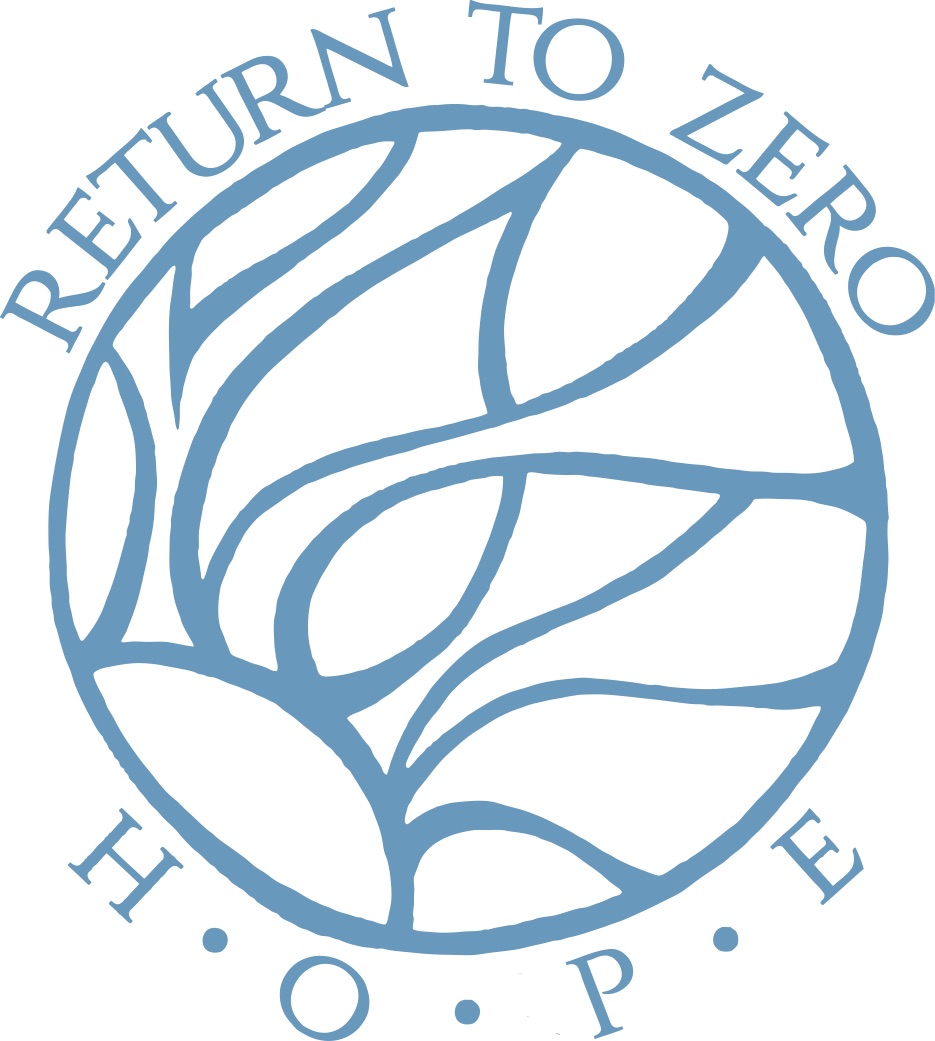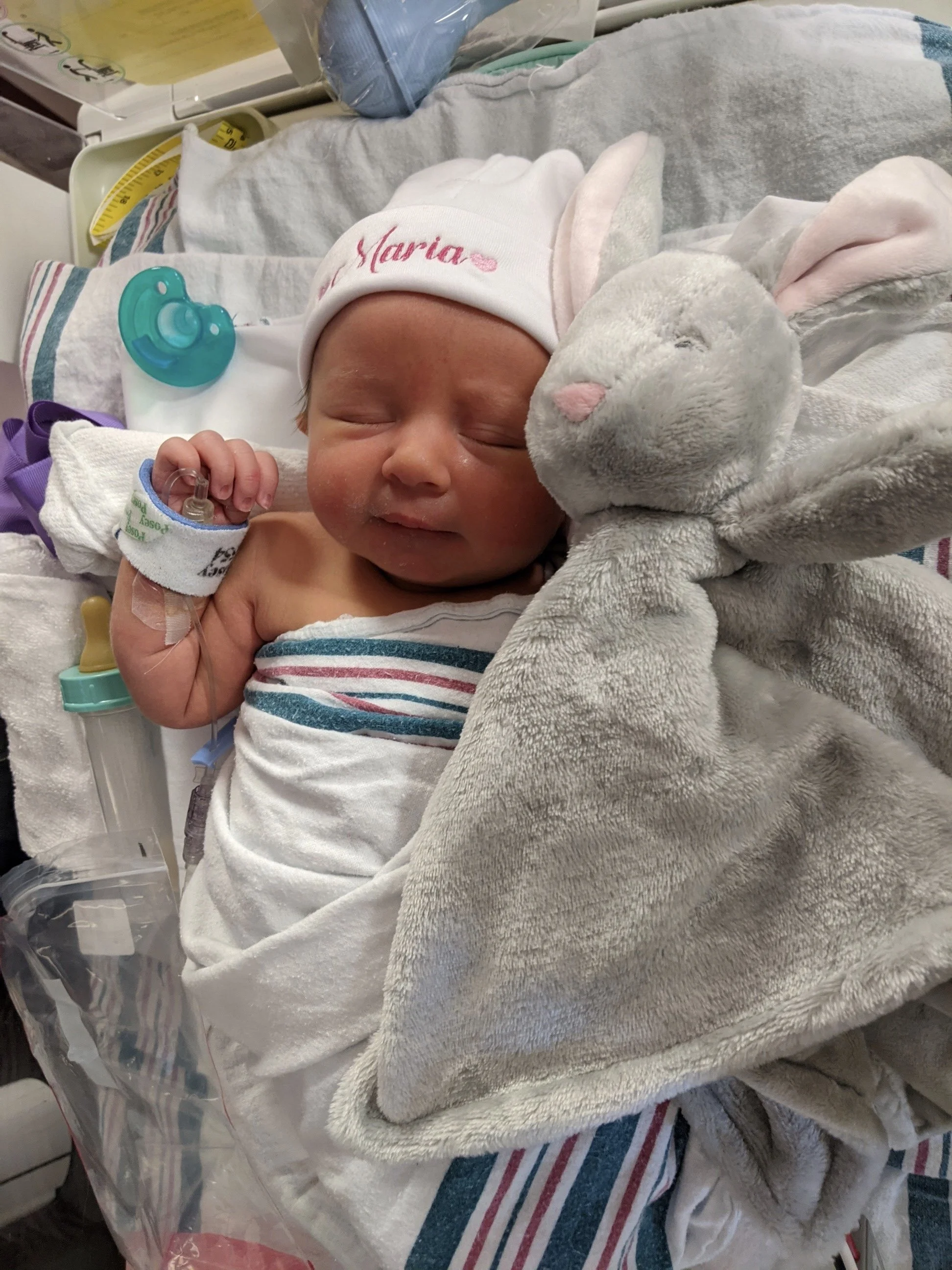Beth, Spreading HOPE for Maria
Ambassador Beth Ledbetter, fundraising in memory of Maria
“In May of 2020, we were ecstatic to learn that I was pregnant! It was my first pregnancy, and everything was going well until out of nowhere, at my mid-pregnancy anatomy scan, they detected significant developmental problems. Our daughter would never walk, talk, or know who we were. We were faced with a devastating choice: terminate my pregnancy for medical reasons halfway through my second trimester, or carry my pregnancy to term despite our daughter’s life-limiting diagnosis, potentially caring for her for the rest of our lives. It felt like a “no win” scenario, like there was nothing we could do to protect our child. After extensive consideration, and in alignment with our deepest beliefs, we chose to carry. I would carry her as long as I could, to give our baby girl her best chance at life, to show her our love, and to allow her to live out her natural life. We named her Maria Therese.
It felt like all the color had drained from the world. My pregnancy became a very different experience from most: what should have been a time of joyful anticipation became a time of significant anticipatory grief and fear of what was to come. Two resources in particular helped me greatly. The first was a book called “A Gift of Time: Continuing Your Pregnancy When Your Baby's Life Is Expected to Be Brief,” which validated my emotions and helped me understand both what to expect and how to prepare. The second was an organization called “Isaiah’s Promise,” dedicated to supporting families carrying to term despite a life-limiting prenatal diagnosis.
By my third trimester, Maria’s prognosis had worsened, and I prayed that I’d be able to meet her alive. In January 2021, those prayers were answered. Our Maria Therese was born alive, full term, at almost 41 weeks. Hearing her cry in the delivery room was one of the best moments of my life. After a few minutes with us, she was taken to the NICU, where she was closely evaluated for 8 days before being discharged home with us under pediatric palliative hospice care. Maria passed away peacefully in our home in April of 2021 – she was three months and four days old. I miss her every day.
As difficult as it was, I know carrying Maria to term was the right decision for us. And even though it has taken a long time, this knowledge has paved the way for hope, and light, and even joy, amidst the grief.
I have seen first-hand how uncomfortable our society is with grief, especially the out-of-order, “unimaginable,” and persistent life-long grief associated with infant loss. To this day, we still don’t know with certainty why Maria had the congenital problems that she had. We did everything right, and there were still problems. It was completely beyond our control. Acknowledging that this happened to us and that it was totally beyond our control means that it could happen to anyone, which is very hard for most people to accept. It contributes to making this loss journey a very lonely one. RTZ Hope gave me a safe and loving community when I desperately needed it, and relationships I cherish and trust to this day.
I wanted to share now in the hopes that our story will reach someone who needs to hear it. I want other loss families to know that you are not alone.”
Pregnancy and infant loss is an unique type of loss, leaving the grievers to feel isolated and unsure of how to move forward. We'd be grateful if you you would consider making a contribution to Beth’s fundraiser in honor of Maria. Your gift ensures that other parents who endure loss on their journey to parenthood have the support, resources, and community they need in order to navigate life after loss.
With your support, here’s what we were able to accomplish during 2022 (2022 Annual Report):
Fifty percent of support group participants received financial support to ensure that all parents have access to services.
Enhanced outreach to and created support services for Black, Indigenous, and other Communities of Color as a response to the alarming rate of preterm births and stillbirths caused by racial disparities in perinatal and infant health.
Offered 50 different support group programs (virtual workshops, virtual support groups, and in-person retreats) to our community of bereaved families.
Supplied our unique perinatal bereavement guides to 400 hospitals and providers to assist in caring for grieving families.
Hosted 10 perinatal bereavement education webinars to parents and providers.
Created community and spread awareness about pregnancy and infant loss through social media.

